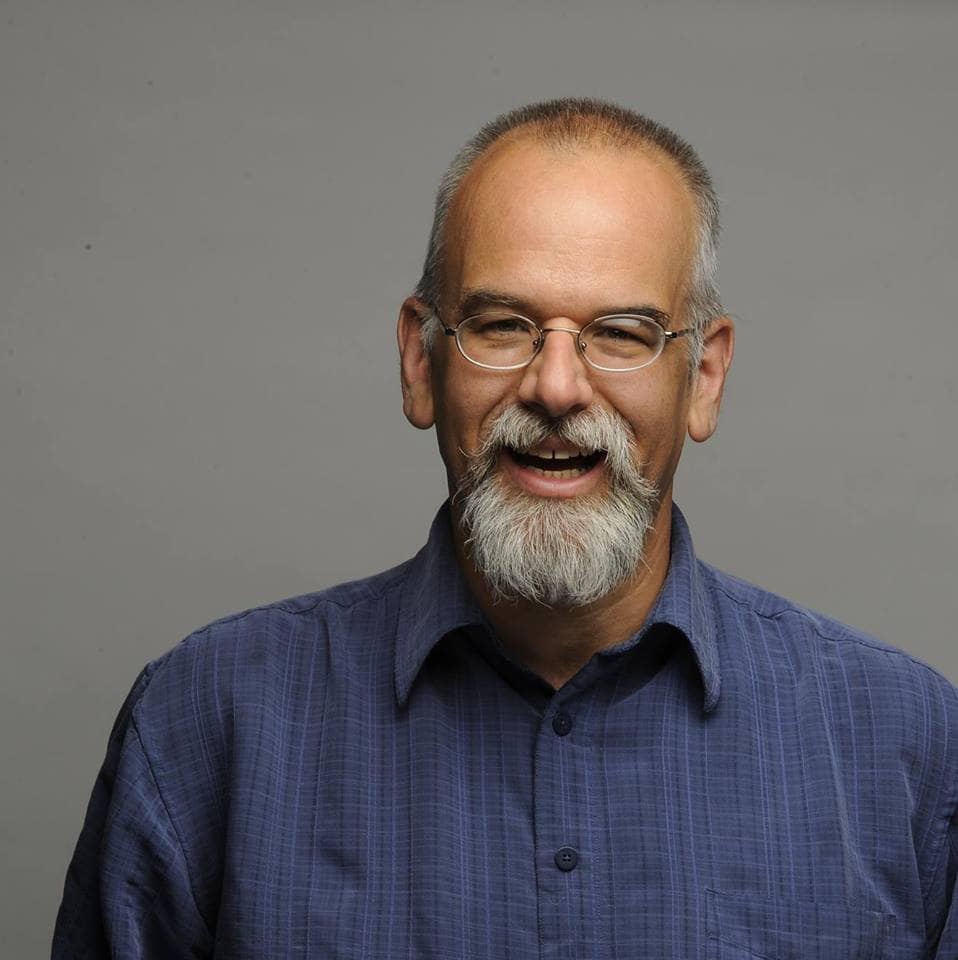
Setting Up Chairs
and Other Tales of Returning to Church—and Then Staying Home
by Bob Smietana | July 22, 2020
I really wanted to go to church on Palm Sunday.
But instead of waving palms and singing God’s praises, I was sitting in my home office, waiting for an online service to start, and typing out a few words about the emptiness that comes from being distant from our family of faith.
Not going to church—at least in person—is the right thing to do in a pandemic.
That doesn’t mean it’s easy or that there is not a sense of loss. There’s also anger, sadness, and, in my case, a few ironic chuckles. Not that long ago, staying at home from church on Sundays was normal for me. Now I can’t stand to be away.
Let me explain.
A number of months ago now, I walked into church on a Sunday morning and passed by a mechanical bull on the way to worship. It was right next to the sign for the Movement Church, a Covenant church plant that meets at Plaza Mariachi on Nolensville Pike, not far from downtown Nashville. The bull had been set up for an event the night before at the plaza, which was now being transformed into a place of worship.
I had hoped to get to church on time to help set up chairs, but other folks beat me to it. So I sat and visited with Jason, who’s been battling cancer, and Dwayne, who leads the men’s ministry at the church.
Becoming part of the Movement has come as a bit of a surprise.
Our family moved to Nashville 12 years ago so I could take a job as the religion writer for the Tennessean, the local newspaper. We’d stayed in town even after I left the paper, as our kids had found new friends and settled into new schools. Finding a church, however, had been a struggle.
When we first decided to move, we’d hoped to become a part a Covenant church plant that seemed to be doing pretty well in Nashville. But they lost their lease and voted to close soon after we arrived.
Nashville is in the heart of the Bible belt and its churches are filled with good-hearted people who love Jesus. But they often had a different view of how to follow Jesus and how to read the Bible.
We found that faith here was often more transactional than sacramental or communal. If you signed on to every jot and tittle in a church’s statement of faith, then you were welcomed with open arms and deeply loved. Disagree a little and you were viewed with suspicion. Disagree on an issue like baptism or the role of women in the church, and fellowship was withheld. Love was only for true believers. That was especially true for the love of God, which at times seemed begrudgingly offered only to the elect.
And besides, they never sang the “right” songs. No “Children of the Heavenly Father” or “O Let Your Soul Now Be Filled with Gladness” or “How Deep Is Your Compassion.”
It feels like a Covenant church—a gathering of God’s friends.
We set up chairs and sing and pray and wait to see
who God will send to us. And we give thanks.

Still, despite our theological differences, we found a church and made friends and started to feel like we belonged. It was not home, but we started to fit in.
Then everything fell apart.
Our pastor feuded with the church over his succession plan and resigned, then rescinded his resignation during the middle of worship, and then resigned again. After a few months, the church merged with another congregation and things settled down.
But the damage was done. Most of our friends had left. And we felt like strangers again. So we left and became like the millions of Americans who sleep in on Sundays and almost never go to church.
We were what sociologists call “Dones”—people who were once deeply involved in a local congregation but no longer have a church home. That lasted for about two years. Then I got a call from my friend Ed, the Baptist.
We talked about work for a while. Then he asked, “Where are you going to church these days?”
“We’re not,” I told him.
“Dude,” he said. “That’s not making Jesus happy.”
He was joking a bit. But my friend was mostly concerned for my well-being. Being cut off from the fellowship of other Christians, even those you disagree with, isn’t great for your soul.
After the call, I remembered that a new Covenant church had been starting up in Nashville. With the help of Google, I found the address and service times. And just before Christmas in 2018, my daughter Marel and I walked into the building where the church was meeting, shook a few hands, and sat down for worship.
Becoming part of a new church is hard. There have been fits and starts. I travel a lot for work and can’t be there every Sunday. It takes time to make friends and as I get older, it’s harder to remember everyone’s name.
Showing up early helps. So does going to the men’s breakfast or hanging around for lunch after church. And writing people’s names down in my cell phone.
While we still don’t always sing the right songs—another downside of getting older—it feels like home. That’s in part because it feels like a Covenant church—a gathering of God’s friends. We set up chairs and sing and pray and wait to see who God will send to us. And we give thanks for all God is doing among us.
Before the pandemic a new couple joined us. Their plan is to start another new Covenant church here in Nashville, and this circle of God’s friends will continue to grow.
For me, this has been what the Evangelical Covenant Church has always been about—a community of the friends of Jesus, who sing and pray and worship together and who love one another while at the same time always setting up a few more chairs to make room for new people to come and join us.
We come to church, to borrow a few lines from the Covenant Book of Worship, not because we must but because we may. Not because we are righteous but because we love Jesus. Not because we are strong but because we are weak and “stand in constant need of God’s mercy and help.”
That need still remains even when we can’t meet together.
On Palm Sunday, the live-stream at our church concluded, and I was feeling disappointed. The service was fine—some singing, prayer, and a passionate message from Pastor Joey. Then a closing prayer and well-wishes for the coming week.
Then Joey and members of the worship team—who were all in the same room while still practicing social distance—breathed a huge sigh of relief that they’d made it through. They chit-chatted a bit before someone realized the camera was still on.
They burst out laughing—and then someone tried to shut the camera off and wasn’t sure how to do it. We all laughed—if the comments in the chat bar are any indication—and for at least one moment it was like we were all together.
For now, that has to be enough.
We’ll keep worshiping online and meeting up on Zoom and remaining socially distant. And we’ll hope for the day when we can all be together.
Even if we have to set up the chairs six feet apart to keep us all safe.

About the Author
Bob Smietana is a veteran religion writer and former Companion staffer. He is the editor-in-chief of Religion News Service. He spends his time hanging out with his three great kids and lovely wife, Kathy.














